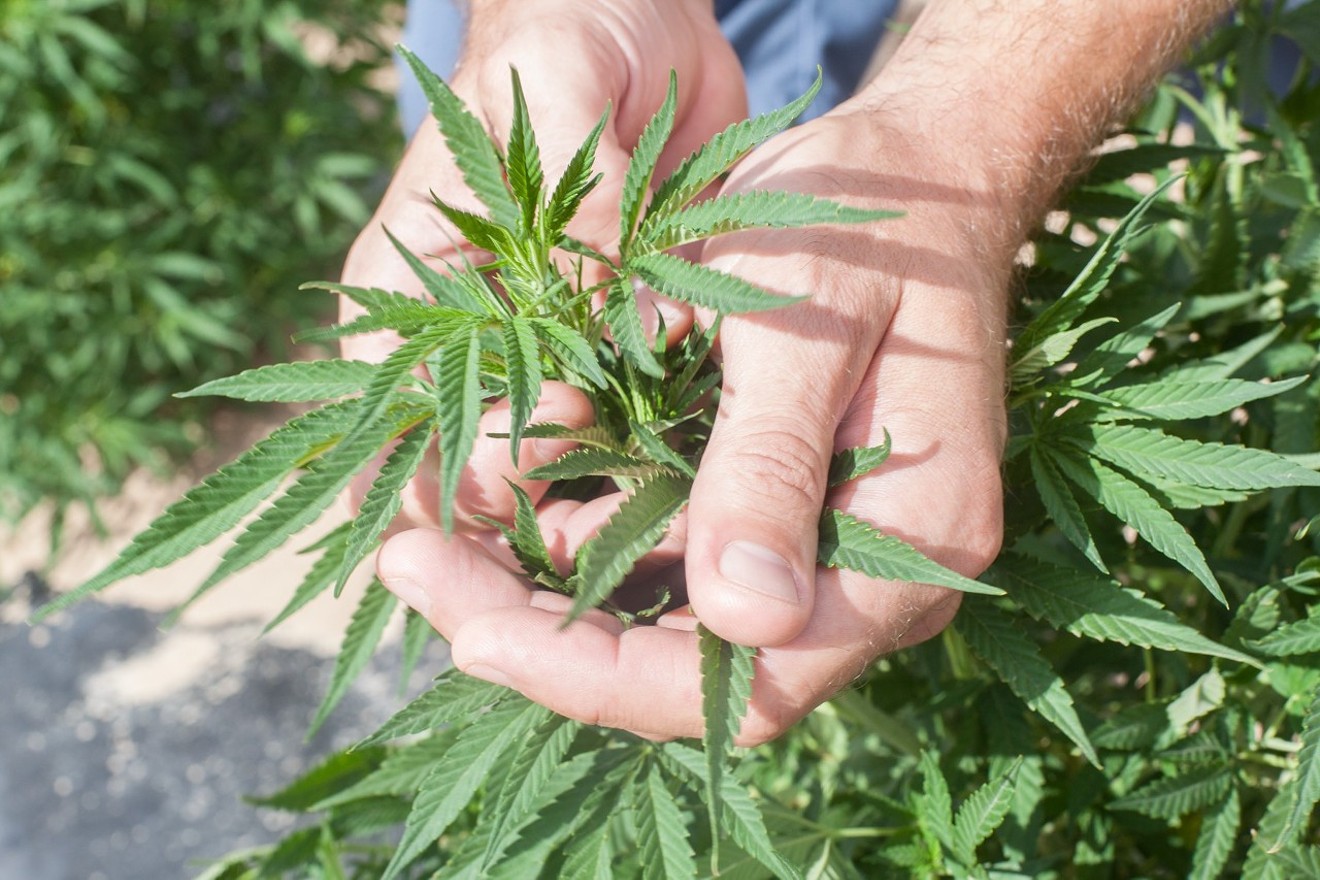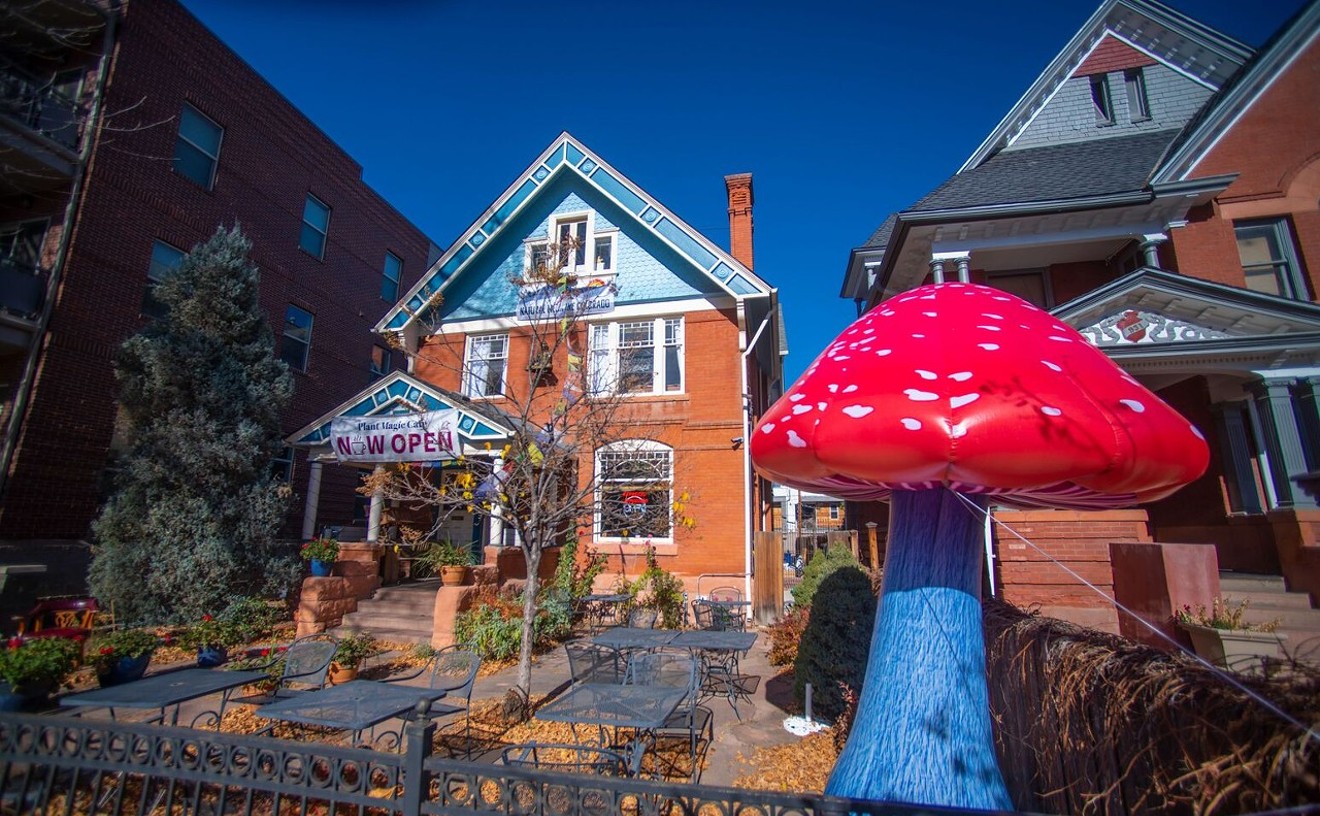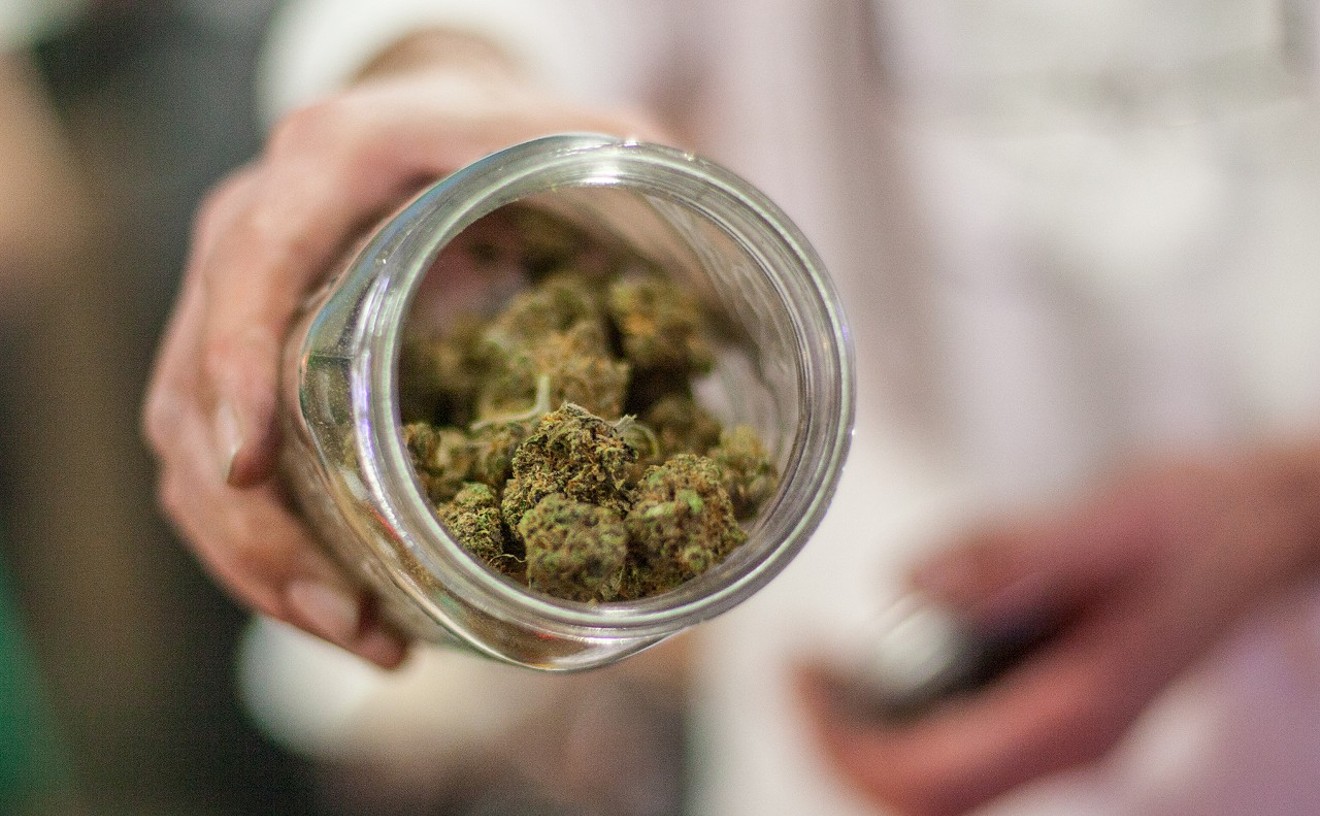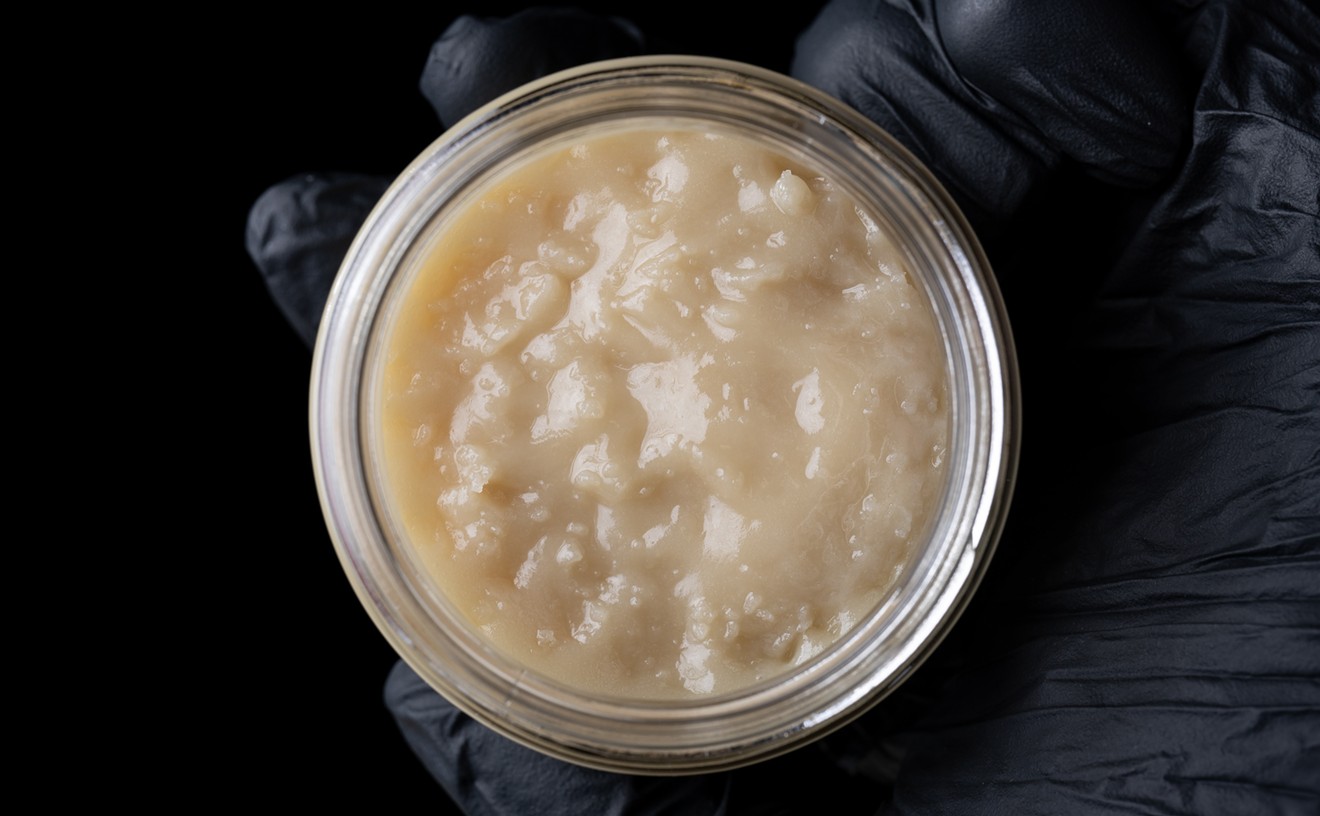Hemp's federal legalization has provided a small spark to the country's agricultural community, with farmers from Washington to Florida now joining in the second round of marijuana's green rush. Colorado farmers already had a leg up on most of the country, though, because this state legalized hemp farming in 2014.
In Colorado, hemp has gone through an evolution similar to that of recreational cannabis, with new growing methods, extraction processes and product applications constantly evolving the craft. To learn more about Colorado's hemp farming community, we caught up with Dion Oakes and his father-in-law, Shanan Wright, who have been operating a family-owned hemp farm for over six years in the San Luis Valley.
Westword: Six years seems like a lot of experience in such a new sector of agriculture. Do you consider yourselves veterans in hemp at this point, or is there still a lot to learn?
Dion Oakes and Shanan Wright: While we know a lot about growing hemp, I wouldn’t say at all that we are veterans, because the industry is moving and changing at such a fast pace, and there is so much to still learn along with what we‘ve already experienced. We have to grow with the industry and keep up with the changes and demands for new hemp products.
How much of hemp's potential have we tapped into so far?
Very little of hemp’s potential is being tapped right now, because the industry is highly concentrated on CBD — but the other uses from the seed and stalks are tremendous! We feel we’ve only possibly tapped into about 10 percent of hemp’s potential at this point, but also feel that will change and more people will understand its value.
As a family farm with experience growing hemp, how has federal legalization and regulation affected your business and others like it Colorado?
We’ve been in the hemp business for six years, and we’ve seen a lot of changes along the way. With the federal government getting involved, it could create some more problems that should not be present in this industry. But, yet again, it’s the Wild West, so we definitely do need some basic rules and uniform/standard regulations to keep the industry honest and everyone on the same playing field. Mostly, the impacts and challenges are on the CBD side, but hemp grain and hemp fiber are more straightforward and can follow other crops and grain-industry standards that are already in place. That's a big help, and we hope the challenges on the CBD side will continue to get worked out.
What are some products hemp is used to make that might surprise people?
Hemp can be used for so many things. CBD is getting a lot of attention since people are using it to relieve pain, help with anxiety or even help with things like epilepsy, but there are many parts to this plant that can be used in just as many ways. In the construction industry alone, it can be used for flooring, cabinets or other building material in place of wood. It’s also being used for insulation or to replace plastic or even paints. It can be used as food or bedding for animals, and it’s a great food for people, too. It can be used for clothing or other fabrics, rope, paper, even biofuel. We think we’re just beginning to see how much this crop can benefit us in so many parts of our lives.
What is hemp grown for more — industrial use or CBD? Can you grow the same crop of hemp for both uses?
Right now, in this new industry, the majority of hemp is grown for CBD, but that could change as more people learn about it and demand rises. We grow hemp a little differently from other farming operations, and we can collect seed, flower (CBD) and the stalks. But some of our fields are dedicated to just grain and fiber. This will eventually be on a much larger scale and will have completely different seed genetics and a different process. There’s a lot of potential for hemp aside from CBD, especially as it becomes more of a household name.
How does growing hemp compare to growing traditional crops like soy, wheat or corn?
This depends on your growing method and farm setup. We grow our hemp with traditional agricultural equipment and practices that can be used for other crops as well, except with our harvesting technique, which has been developed specifically for hemp.
Other than the lack of THC and not getting users high, what do you think are some common public misconceptions about hemp?
People often associate hemp with THC and getting high, but another misconception is that people think you grow hemp to hide your marijuana in the middle of the hemp field, which is simply not the case at all. The crops are different. If you grew them together, they would cross-pollinate, and both crops would have big problems. We’re growing hemp because it’s extremely versatile and offers a lot of benefits on its own.
[
{
"name": "Air - MediumRectangle - Inline Content - Mobile Display Size",
"component": "12017618",
"insertPoint": "2",
"requiredCountToDisplay": "2",
"watchElement": ".fdn-content-body",
"astAdList": [
{
"adType": "rectangle",
"displayTargets": "mobile"
}
]
},{
"name": "Editor Picks",
"component": "17242653",
"insertPoint": "4",
"requiredCountToDisplay": "1",
"watchElement": ".fdn-content-body",
"astAdList": [
{
"adType": "rectangle",
"displayTargets": "desktop|tablet"
},{
"adType": "rectangle",
"displayTargets": "desktop|tablet|mobile"
}
]
},{
"name": "Inline Links",
"component": "18838239",
"insertPoint": "8th",
"startingPoint": 8,
"requiredCountToDisplay": "7",
"maxInsertions": 25
},{
"name": "Air - MediumRectangle - Combo - Inline Content",
"component": "17261320",
"insertPoint": "8th",
"startingPoint": 8,
"requiredCountToDisplay": "7",
"maxInsertions": 25,
"watchElement": ".fdn-content-body",
"astAdList": [
{
"adType": "rectangle",
"displayTargets": "desktop|tablet"
},{
"adType": "rectangle",
"displayTargets": "desktop|tablet|mobile"
}
]
},{
"name": "Inline Links",
"component": "18838239",
"insertPoint": "8th",
"startingPoint": 12,
"requiredCountToDisplay": "11",
"maxInsertions": 25
},{
"name": "Air - Leaderboard Tower - Combo - Inline Content",
"component": "17261321",
"insertPoint": "8th",
"startingPoint": 12,
"requiredCountToDisplay": "11",
"maxInsertions": 25,
"watchElement": ".fdn-content-body",
"astAdList": [
{
"adType": "leaderboardInlineContent",
"displayTargets": "desktop|tablet"
},{
"adType": "tower",
"displayTargets": "mobile"
}
]
}
]












